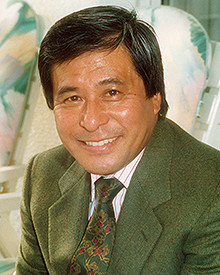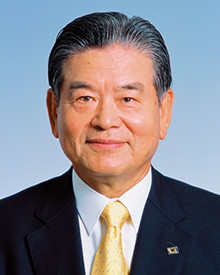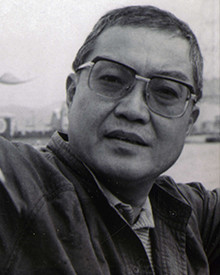Japan Football Hall of Fame
JFA Hall of Fame Inductee
NINOMIYA Hiroshi
Special Selection: 12 th Japan Football Hall of Fame Inductee in 2015

- Born in Tokyo on 13 February 1937
NINOMIYA Hiroshi joined New Mitsubishi Heavy Industries (known as Mitsubishi Heavy Industries, Ltd. since 1964, a predecessor of Urawa Reds Diamonds) as a forward player in 1959 after graduating from Keio Senior High School and Keio University. In 1956, he played for Keio BRB and helped the team to win the Emperor’s Cup All Japan Football Championship. He made the debut for the national team in 1957 while studying at Keio University and made 38 appearances and scored 14 goals as a representative of Japan.
Since 1967, he served as a head coach of Mitsubishi for nice seasons while playing as a player in 1967 and 1968 and established the golden age of its team by posting the highest winning percentage of 60.1% and stretching the longest undefeated record for 26 games (in between 1968 and 1970) of the Japan Soccer League(JSL). In 1968, he moved to Germany to learn from one of the greatest coaches, Hennes WEISWEILER, and strengthened the ties with German football. By studying the latest systematic and offensive tactics, he nurtured attackers of the bronze-winning Olympic National Team in Mexico, namely YOKOYAMA Kenzo, KATAYAMA Hiroshi, SUGIYAMA Ryuichi and MORI Takaji, in addition to the forward player of the new era, OCHIAI Hiroshi. In 1969, he led the club team to prevent the consecutive titles by the former champion, Toyo Kogyo, and won JSL for the first time. He also achieved to claim the first-ever title of the Emperor’s Cup in 1971 and won both the JSL and Emperor’s Cup in 1973.
He adapted innovative methods to strengthen the team at that time such as conducting a first-ever tour to South America and sending players to the study abroad as the Japanese clubs. Furthermore, he contributed to the development of football in aspect of strengthening clubs by creating an environment and system for the professional players to be able to concentrate in football through the improvement of their working condition, installation of the first artificial pitch and establishment of the medical team.
He was appointed as the coach of the national team in 1976. With his forward-thinking mind and vitality, he tried out new ideas such as sending players to the clubs in Germany to improve their individual skills. He also committed himself to improve the working conditions of the players to maintain the toughness required for the professionals and discipline of a national player to enhance the value of the Japan national team.
During the time as the national team’s coach, he created an opportunity for OKUDERA Yasuhiko to transfer to 1.FC Koln through the close friendship with Hennes WEISWEILER and opened the doors for the future players to play in the top club teams of the world.






